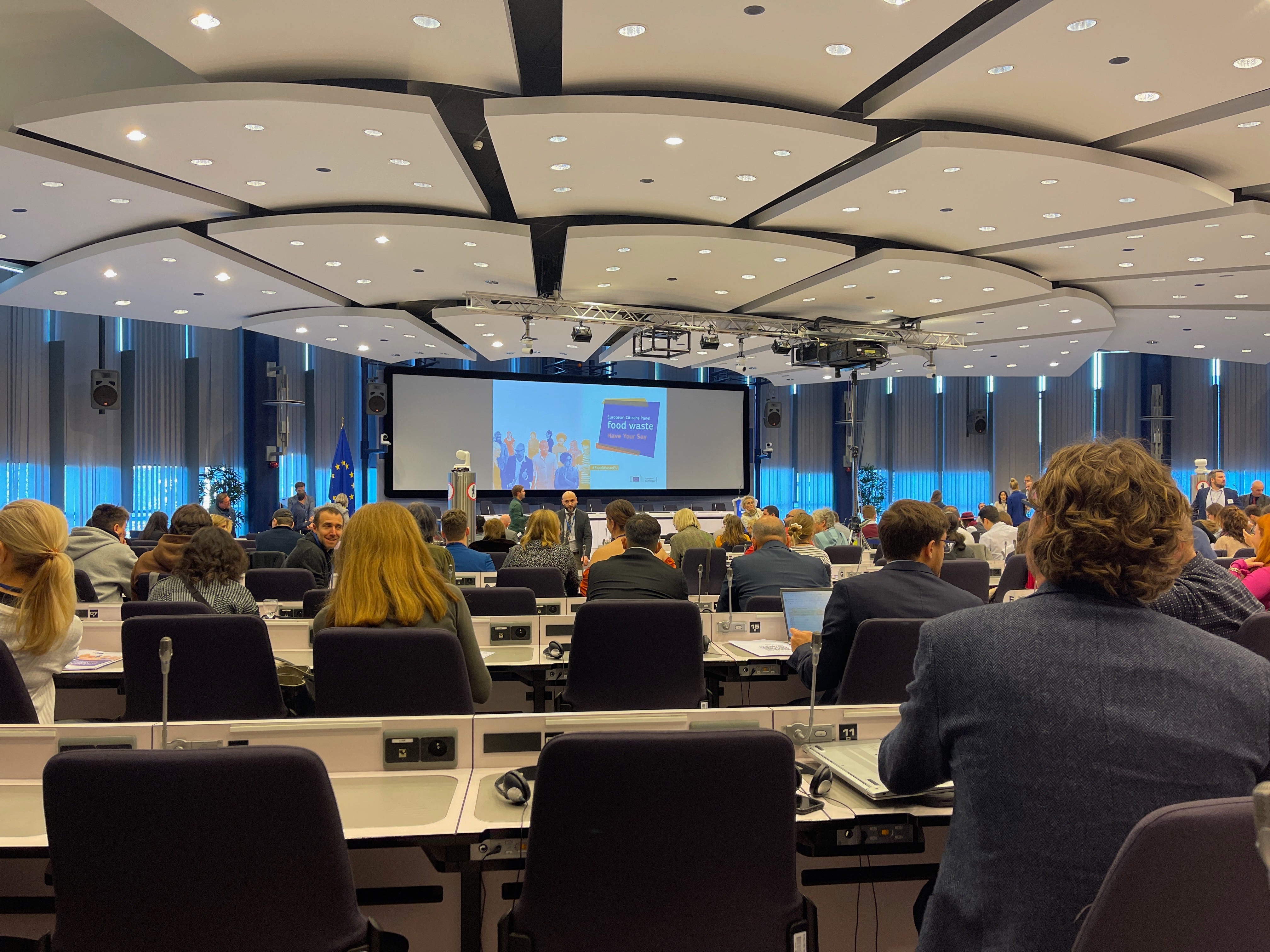Gobblefunking around with words
Citizen participation and the meaning of words
Governments are text-generating machines. Policy drafts and legal texts exist only in word form. A colleague from IT once told me that he was fascinated by legal texts, because they reminded him of computer code. Anyone who works in government will have sat through whole meetings dedicated to a single word or a single sentence.
Words matter.
1000 Brussels is a reader-supported publication. To receive new posts and support my work, consider becoming a free or paid subscriber.
Citizen deliberation is rooted in human opinion and emotion, but once expressed that is also processed into words. Ideas, recommendations, proposals are all drafted and edited, by participants or by facilitators. Then they are clustered, grouped, prioritised and finally delivered as recommendations.
The careful and formal handling - drafting, amendments, and so on - that you see in government is often absent in citizen spaces. That’s not surprising. Citizens arrive into these processes with their own vocabulary. They don’t know the standard jargon, they don’t want to read Rules of Order and they shouldn’t have to. Many citizen processes are not designed with a textual output in mind - they are more about allowing people to express themselves, and understanding the richness of citizen views.
And yet … how citizen deliberation handles text should be taken more seriously, as the weight placed on such processes increases. A vaguely-expressed idea in one session might be edited or clarified by someone else (a facilitator, or another participant), and then grouped or clustered along with other ideas. Then, presented back to another group, it might sound bland or confusing - so it will be further clarified or enhanced.
At the end of the process, no one person will own the idea. That’s good, in a way, because no-one will be defensive about it, or offended if people vote against it. But there is a risk in the other direction - no one is protecting it from the slow accumulation of error or bias.
There is also a centripetal force at work. One person’s idea might be slightly on the edge of the discussion, but by being revised and grouped, it will likely be homogenised, drawn closer to a middle position. It is unlikely to become more different or more radical. In consensus processes, gravity pulls you to the centre.
European events like the Citizen’s Panel add the beauty and complexity of multilingualism. The 150 citizens participating spoke over twenty languages. Professional interpreters were there, and did a great job. A clever spreadsheet with built-in machine translation was used to ensure that suggestions in Polish could be read in Portuguese.

Even the smartest technology had limited material to work with, though. Suggestions from citizens, paraphrased by facilitators, were often only a single sentence or phrase. Machine translations, working “blind” without seeing context or hearing conversation, were often rough and hard to understand. The professional interpreters ensured the conversation flowed, but had no means of engaging with the text itself.
The process over the weekend, the first of three, aimed at creating a set of idea clusters to take forward - the top three were: “Local farmers and small producers, a solution to food waste?”; “Learning and awareness raising”; and “‘Taste the Waste’ A Campaign Against Food Waste” - the latter of which creates some hair-raising mental images.
This is a good example of how gathering and clustering is a sausage machine. Lots of things go in, a few things come out. None of those three ideas are bad, exactly, though two of the three are about campaigns, and none of them about systemic regulation. The centripetal force of the process, and the human frame of reference of the participants stands out very clearly, and will be something to consider in the design of the second weekend.
So, how can we give words a bit more love and care in processes like the European Citizen Panels?
First, I think we need to make use of the professional skills of interpreters and translators. They will have listened in to the conversation, and can help facilitators reflect on the meanings and nuances of suggestions, particularly when the same word has a difference of emphasis or tone between languages - I was gently told off when speaking French recently because I used “tribe” to refer to a group of friends who share similar interests.
Second, in multilingual processes, I would give participants some time to work in monolingual groups without interpretation. You would lose some of the pan-European connection, but people would be able to talk in more natural settings, and produce consensus drafts together.
Third, we need a technology upgrade from sausage machine to loom, where the different ideas and threads of discussion can be tracked back more easily (the spreadsheet used here has some elements of that, but it is as clunky as any attempt to represent a network on a spreadsheet would be). This would help show the richness of the conversation, and also help us identify better techniques and rules for clustering.
Finally, learn from other forms of democracy - how are amendments handled? how is disagreement represented? how are people able to object when an idea has been pulled too far away from its original intent? We don’t need to bring the full weight of Parliamentary process into the citizen deliberation space, but if millions of euros or the rights of thousands might turn on a single word, we need to make the choosing of it as robust as possible.
1000 Brussels is a reader-supported publication. To receive new posts and support my work, consider becoming a free or paid subscriber.